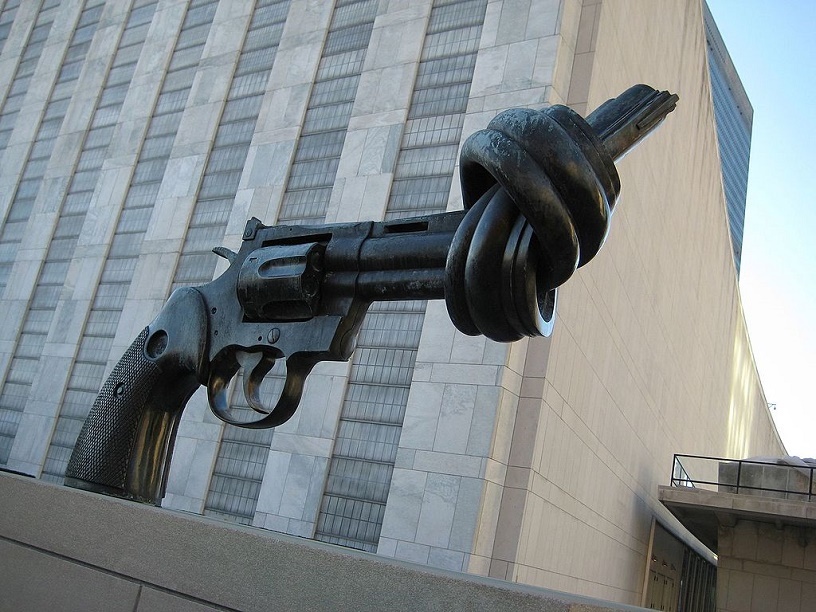Nuclear weapons declared illegal under international law
The UN Treaty on the Prohibition of Nuclear Weapons (TPNW) is entering into force as international law after being ratified by the 50th state. This historic step forward for the global community will help to rid the world of weapons of mass death and destruction.

So far, the UK government is refusing to engage with the Treaty. Quakers in Britain are repeating their call on the government not to boycott the TPNW.
Paul Parker, Recording Clerk for Quakers in Britain said, "Love for our neighbour is the very heart of the Christian way of life. How can we love someone, and yet have a nuclear weapon, a horrific instrument of death, primed and ready for launch, pointed towards them at the same time?
"We have to find a better way. Nuclear weapons make us no safer. This treaty is a start, and Quakers urge the UK government to sign it, and to dismantle our nuclear arsenal."
Ninety days after the 50th ratification, the treaty will enter into force as international law. The nine nuclear-armed nations (US, Russia, China, UK, France, Israel, India, Pakistan, North Korea), who have so far boycotted the treaty, will then be in violation of international law.
[QUOTE-START]
Nuclear weapons make us no safer.
- Paul Parker, Recording Clerk
[QUOTE-END]
As ICAN UK, the UK branch of the International Campaign to Abolish Nuclear Weapons, points out, the Treaty comprehensively prohibits participation in any nuclear weapon activities: “It bans the production, development, stationing, and testing of nuclear weapons, as well as use and threat of use; forbids assistance for all prohibited activities; and requires the provision of assistance to victims and remediation of polluted land from nuclear weapon use and testing".
The passing of the TPNW into law is a result of decades of work by the peace movement, faith groups, other parts of progressive civil society and forward-thinking diplomats and policy-makers. Quakers have played an active part in the global movement for nuclear disarmament. Quakers in Britain joined more than 440 non-governmental organisations in supporting the treaty, including the World Council of Churches.
TPNW is binding on the states that join it, and even the countries that are not party to the treaty will be affected by it coming into force. It provides a strong new legal and normative framework that will help to stigmatise nuclear weapons and change concrete policies and behaviours.
It is likely that other countries will now join the ban, now the Treaty is law. In Britain, a YouGov public opinion poll in 2017 found that 75 per cent of people believed that the UK government should participate in the UN Nuclear Ban Treaty negotiations, with just 9 per cent opposed to participating and 16 per cent undecided. Millions of people across the globe want to see a world free from these horrific weapons.
The 50th ratification came on the 75th anniversary of the United Nations. The first order of business at the UN's founding in 1945 was to address the nuclear threat.